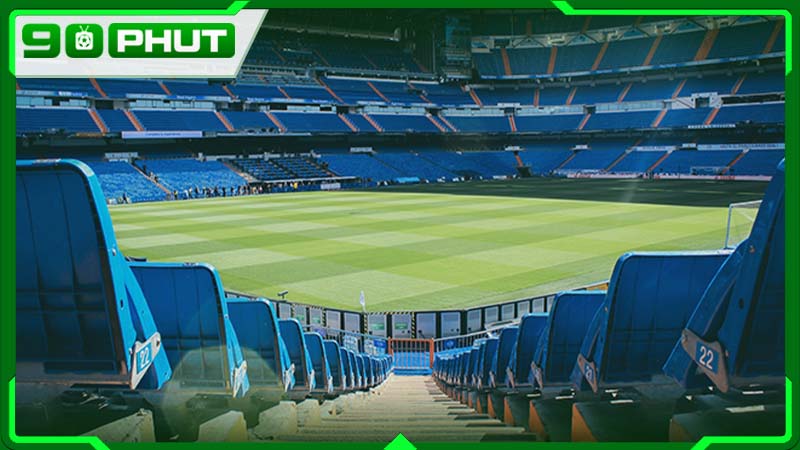

- Tất cả
- Trực tiếp
- Nóng
- Hôm nay
- Ngày mai
 CRIS
CRIS  CÔNG LÝ
CÔNG LÝ  MÁT GAI
MÁT GAI  SAO LA
SAO LA  TẠ BIÊN GIỚI
TẠ BIÊN GIỚI  SÙNG A MÚP
SÙNG A MÚP 

 CÁ
CÁ  KHÔNG NGỦ
KHÔNG NGỦ  TẠ BIÊN GIỚI
TẠ BIÊN GIỚI  CRIS
CRIS  DECO
DECO  PEWPEW
PEWPEW  Củ Cải
Củ Cải  RAM
RAM  FANTA
FANTA  SINGER
SINGER  RICKHANTER
RICKHANTER  TAM MAO
TAM MAO 

 RICKHANTER
RICKHANTER  TẠ BIÊN GIỚI
TẠ BIÊN GIỚI  SINGER
SINGER  Củ Cải
Củ Cải  DECO
DECO  FANTA
FANTA 

 TAM MAO
TAM MAO  A PHẠCH
A PHẠCH  CRIS
CRIS  CÁ
CÁ  RAM
RAM  KHÔNG NGỦ
KHÔNG NGỦ 

 PEWPEW
PEWPEW  TẠ BIÊN GIỚI
TẠ BIÊN GIỚI  DECO
DECO  Củ Cải
Củ Cải  SINGER
SINGER  RICKHANTER
RICKHANTER 

 Bin Bin
Bin Bin  CRIS
CRIS  TOMIA
TOMIA  SÙNG A MÚP
SÙNG A MÚP  PEWPEW
PEWPEW  FIREMAN
FIREMAN 

 FANTA
FANTA  TẠ BIÊN GIỚI
TẠ BIÊN GIỚI  Củ Cải
Củ Cải  RICKHANTER
RICKHANTER  DECO
DECO  TOMMY
TOMMY 

 RICARDO
RICARDO  TAM MAO
TAM MAO  KEVILL
KEVILL  RAM
RAM  LOGAN
LOGAN  CÔNG LÝ
CÔNG LÝ 

 BÁC SĨ
BÁC SĨ  PELE
PELE  FIGO
FIGO  PICASSO
PICASSO 

 Củ Cải
Củ Cải  RICKHANTER
RICKHANTER  DECO
DECO  TAP
TAP  TẠ BIÊN GIỚI
TẠ BIÊN GIỚI  SINGER
SINGER 

 CÁ
CÁ  SÙNG A MÚP
SÙNG A MÚP  FANTA
FANTA  LONG
LONG  TAM MAO
TAM MAO  TYPN
TYPN 

 KHÔNG NGỦ
KHÔNG NGỦ  SINGER
SINGER  V.TÍCH
V.TÍCH  KEVILL
KEVILL  PEWPEW
PEWPEW  RAM
RAM 

 DECO
DECO  TYPN
TYPN  Bin Bin
Bin Bin  SINGER
SINGER  Củ Cải
Củ Cải  FANTA
FANTA 

 SHOGUN
SHOGUN  RICARDO
RICARDO  LOGAN
LOGAN  KUDO
KUDO  MĂNG CỤT
MĂNG CỤT  RAM
RAM 

 CÔNG LÝ
CÔNG LÝ  TẠ BIÊN GIỚI
TẠ BIÊN GIỚI  KHÔNG NGỦ
KHÔNG NGỦ  TOMMY
TOMMY  CRIS
CRIS  A PHẠCH
A PHẠCH 

 RICKHANTER
RICKHANTER  TAM MAO
TAM MAO  SÙNG A MÚP
SÙNG A MÚP  CÁ
CÁ  PEWPEW
PEWPEW  LONG
LONG 

 A PHẠCH
A PHẠCH  SHOGUN
SHOGUN 

 A BỆU
A BỆU  PIRLO
PIRLO 

 RICKHANTER
RICKHANTER  SINGER
SINGER  SAO LA
SAO LA  RAM
RAM  Củ Cải
Củ Cải  DECO
DECO 

 Bin Bin
Bin Bin  FIGO
FIGO 

 AK47
AK47  PELE
PELE 

 ĐỐM
ĐỐM  NIBO
NIBO 

 NAM TÀO
NAM TÀO  BẬP BÙNG
BẬP BÙNG 

 Hổ Lùn
Hổ Lùn  TÁO
TÁO 

 HOPE
HOPE  CÔNG CHẤT
CÔNG CHẤT 

 PICASSO
PICASSO  CAPTAIN
CAPTAIN 

Định nghĩa 90phut TV trực tiếp bóng đá là gì?
90phut chính là một điểm đến dành cho những tín đồng bóng đá với niềm đam mê cháy bỏng. Chúng tôi tự tin đưa đến cho bạn những trải nghiệm trực tiếp bóng đá tuyệt vời nhất, từ những trận cầu kịch tính đến những bí mật hậu trường không thể bỏ qua. Còn gì tuyệt vời hơn khi bắt đầu một ngày mới với lịch thi đấu đầy đủ và chính xác, cùng những tin tức nhanh chóng và video highlights sáng tạo từ chuyên trang trực tiếp bóng đá hàng đầu này.

90 phút TV sở hữu bản quyền của rất nhiều những giải đấu đẳng cấp nhất thế giới. Đó là nơi hội tụ của những siêu sao hàng đầu, đem lại những giờ phút vô cùng quý giá cho khán giả khắp năm châu thưởng thức. Hệ thống website đầy đủ tiện ích, có thể đáp ứng những người hâm mộ có chuyên môn với những tỷ lệ cược được cập nhật nhanh nhất. Giao diện đẹp mắt, tối giản càng giúp cho 90 phut TV đến gần hơn, thêm vào đó là những bình luận viên xuất sắc, có cá tính, càng khiến trải nghiệm của khán giả chạm tới điểm trọn vẹn nhất.
Giới thiệu về trang xem bóng đá trực tuyến hàng đầu 90phut TV
| ?90phut TV kênh trực tiếp bóng đá số 1 Việt Nam | ✅tructiepbongda có bình luận, siêu mượt, miễn phí |
| ?Lịch thi đấu bóng đá | ✅Cập nhật LTĐ mỗi vòng đấu sớm nhất |
| ?Kết quả bóng đá | ✅Cập nhật KQBD realtime trong và sau trận đấu |
| ?Bảng xếp hạng bóng đá | ✅Cập nhật nhanh chóng và chính xác sau mỗi trận |
| ?Siêu máy tính dự đoán bóng đá | ✅Siêu chính xác, đã được kiểm nghiệm bởi chuyên gia |
Với định hình là trang web trực tiếp bóng đá hàng đầu mọi giải đấu, 90phut live tỏa sáng với vị thế vô song trong làng giải trí thể thao trực tuyến. Nơi đây, bạn không chỉ được theo dõi bóng đá miễn phí mà còn trải nghiệm chất lượng hình ảnh hoàn hảo, sắc nét và âm thanh tốt, đưa không khí sôi động của sân cỏ ngay đến tận nơi. Trận đấu trực tiếp bóng đá hôm nay được cập nhật sớm, đảm bảo bạn không bỏ lỡ bất kỳ pha bóng nào, dù thiết bị sử dụng cố định như máy tính, tivi hay linh hoạt như những chiếc điện thoại di động.
Đặc biệt, trước giờ bóng lăn, nhận định bóng đá của những chuyên gia hàng đầu sẽ giúp bạn có cái nhìn chi tiết và chính xác về trận đấu. Giao diện đẹp, tiện nghi và dễ sử dụng trên nhiều thiết bị làm tăng trải nghiệm người dùng. Ngoài ra, 90phut tv cung cấp tỷ lệ kèo đầy đủ, giúp bạn đưa ra quyết định thông minh khi đặt cược một cách có cơ sở nhất.
Không chỉ dừng lại ở đó, 90phut tv còn điểm nhấn bằng việc cung cấp những clip highlight bóng đá nổi bật sau từng trận đấu, giúp bạn nhanh chóng ôn lại những khoảnh khắc đẹp và quan trọng nhất của mỗi trận đấu. Cũng có thể đó là một trận đấu trực tiếp bóng đá tối nay mà bạn đã bỏ lỡ, việc có được một clip highlight có độ dài trên 10 phút cùng những tóm tắt, đánh giá về điểm số từng cầu thủ, những thống kê khác sẽ giúp người hâm mộ nắm được diễn biến, bắt kịp với những sự sục sôi hàng giờ của làng túc cầu.
Thấu hiểu mong muốn của số đông NHM, 90phut TV tỏa sáng rực rỡ với sự hoàn hảo và khác biệt, vượt xa so với các đối thủ trên thị trường về sự chuyên nghiệp của một trang trực tiếp bóng đá. Chọn 90phut tiếng rưỡi, bạn chọn lựa sự chất lượng và đam mê bất tận với bóng đá.
Tầm nhìn và sứ mệnh của kênh truc tiep bong da 90 phut TV
Truc tiep 90phut vẫn đã và đang là một điểm đến khó có thể chối từ với mọi người hâm mộ bóng đá. Không cần kinh phí, chẳng cần phải ngóng chờ vào những đường link hên xui, chúng tôi cam kết trải nghiệm tốt nhất thị trường ở hầu hết mọi khía cạnh.
Sự hài lòng của khán giả, sự đam mê và trách nhiệm, mục tiêu phát triển dài hạn chính là cơ sở để chúng tôi tiếp tục nâng tầm dịch vụ, củng cố vững chắc giá trị cốt lõi của website. Hãy tiếp tục cập nhật thêm những tính năng mới của hệ thống, rồi còn cả chất lượng của dàn bình luận viên hảo hạng sẽ còn được tiếp nối qua nhiều mùa giải tới. 90Phut TV đã sẵn sàng để trở thành người dẫn đầu rồi.
90phut TV cung cấp link xem trực tiếp bóng đá mọi giải đấu

90 phut live sở hữu hàng loạt các giải đấu bóng đá hàng đầu trên thế giới. Trang web này đảm bảo mang đến trải nghiệm tuyệt vời cho người hâm mộ, với sự đa dạng và đầy đủ các giải đấu từ khắp các châu lục.
1. UEFA Champions League (Cúp C1 Châu Âu)
Là đỉnh cao của bóng đá châu Âu, UEFA Champions League là giải đấu mà 90phut tv đặc biệt chú trọng qua từng lượt trận. Khán giả có thể xem trực tiếp từng trận đấu trên 90phut trực tiếp bóng đá đêm nay, cùng với những bình luận và nhận định sắc bén từ các chuyên gia bóng đá. Những CLB hàng đầu như Real Madrid, Man City, PSG sẽ luôn nhận được sự quan tâm lớn từ người hâm mộ.
2. Premier League (Ngoại Hạng Anh)
Nếu bạn là người hâm mộ bóng đá Anh, 90phut trực tiếp bóng đá là nguồn cung cấp lịch thi đấu, trực tiếp và video highlight đầy đủ cho Premier League. Bạn sẽ không bỏ lỡ bất kỳ cảm xúc nào từ những trận đấu trực tiếp bóng đá kịch tính, ngay cả khi thời gian không thuận lợi. Chứng kiến những Man City cùng Liverpool ra sân hàng tuần, đó chắc chắn sẽ tạo nên những dòng cảm xúc khó diễn tả.
3. La Liga (Tây Ban Nha)
Với sự hấp dẫn và sự kịch tính không ngừng, La Liga là một trong những giải đấu được 90phut TV chú ý đặc biệt. Khán giả có thể tận hưởng những pha bóng đẹp và tài năng của các đội bóng hàng đầu Tây Ban Nha. Những trận El Clasico thì từ lâu vẫn là một món ăn chẳng ở đâu có được, luôn thu hút những CĐV trên khắp thế giới.
4. Serie A (Ý)
Serie A, giải đấu nổi tiếng của Ý, cũng được 90phut tv cung cấp đầy đủ thông tin. Từ những trận đấu trực tiếp bóng đá căng thẳng đến những bàn thắng nghệ thuật, người xem sẽ được hòa mình vào không khí sôi động của bóng đá Ý. Sự bứt lên của Napoli, hành trình trở lại của 2 nửa thành Milano đang khiến cho Serie A nhiều năm trở lại đây khó đoán hơn bao giờ hết.
5. Bundesliga (Đức)
Đứng đầu bảng xếp hạng về sự hứng khởi và sự hỗn loạn, Bundesliga là một điểm sáng trên 90phut link. Khám phá những pha bóng thần tốc, triết lý Pressing rực lửa và những chiến thuật tinh tế của các đội bóng Đức. Dortmund, Bayern và mới đây là cả Leverkusen đang là những đối trọng trong cuộc đua vô địch
6. Copa America
Không chỉ giới hạn trong khuôn khổ châu Âu, truc tiep 90phut tv còn mở rộng đối tượng người xem với Copa America, nơi thường là cuộc ganh đua giữa Argentina và Bail. Giải đấu danh giá của châu Mỹ Latin mang lại những trận cầu đỉnh cao và 90phut live sẽ đưa người hâm mộ đến gần những khoảnh khắc đặc biệt.
7. AFCON (Cúp Quốc gia châu Phi)
Châu Phi không thiếu những trận cầu kịch tính, và AFCON là sự kiện lý tưởng để theo dõi các đội tuyển châu Phi đối đầu với nhau. 90phut tv mang lại cái nhìn toàn diện về giải đấu này, từ lịch thi đấu đến video highlights. Những dòng cảm xúc được đem lại bởi những siêu sao như Salah, Mane sẽ tiếp tục mở ra cuộc chiến đỉnh cao.
8. Giải Vô Địch Quốc Gia (World Cup)
Đương nhiên, không thể thiếu giải đấu lớn nhất hành tinh – World Cup. 90 phút TV là nguồn tin cậy cho mọi thông tin về vòng loại, lịch thi đấu và những khoảnh khắc không thể quên từ những kỳ World Cup. Giải đấu số 1 thế giới thì đương nhiên luôn có một vị thế đặc biệt quan trọng với những khán giả. Và để mọi thứ trọn vẹn hơn, 90phut TV với những BLV chất lượng nhất, giao diện tuyệt hảo sẽ hỗ trợ cho người hâm mộ đón nhận từng khoảnh khắc khắc.
90phut trực tiếp bóng đá không chỉ cung cấp trải nghiệm xem bóng đá mà còn là hành trình đắm chìm trong những giải đấu đỉnh cao của bóng đá thế giới. Đa dạng, chất lượng và đầy đủ – đó là lý do khiến chúng tôi trở thành điểm đến tốt nhất cho người hâm mộ bóng đá trực tuyến.
Sự vượt trội của 90 phút TV so với các kênh truc tiep bong da khác
Sự ủng hộ đông đảo của khán giả cho thấy kênh tructiepbongda 90p TV đang vượt trội so với các kênh xem bóng đá trực tuyến khác, cùng xem những lí do chính sau đây:
Chất Lượng Hình Ảnh và Âm Thanh Hoàn Hảo đến từ 90 phút TV
Chất lượng là cam kết hàng đầu của kênh trực tiếp bóng đá 90phut. Mỗi chi tiết trên sân cỏ được hiển thị một cách chân thực, tạo ra trải nghiệm xem bóng đá như chưa từng có. Hình ảnh rõ nét, sắc nét và âm thanh sống động giúp người xem đắm chìm trong không khí sôi động của mỗi trận đấu trực tiếp bóng đá.
Không chỉ dừng lại ở hình ảnh, âm thanh tại 90phut TV cũng được đặt vào tầm quan trọng cao. Hệ thống âm thanh được điều chỉnh chính xác, đảm bảo mỗi tiếng la ó, tiếng còi, hay tiếng nổ từ khán đài đều trở nên sống động và tận thực. Điều này tạo ra một trải nghiệm âm nhạc bóng đá chân thực, làm tăng thêm cảm giác hứng khởi và hồi hộp.
Chất lượng hình ảnh và âm thanh hoàn hảo không chỉ là một yếu tố kỹ thuật, mà còn là mục tiêu chính để đáp ứng sự hài lòng của người xem. 90phut TV không ngừng cập nhật và nâng cấp công nghệ để đảm bảo người hâm mộ có trải nghiệm xem bong da tốt nhất, với hình ảnh và âm thanh đỉnh cao.

Giao Diện Đẹp, Tiện Nghi, Dễ Sử Dụng
Giao diện của 90phut tv không chỉ đẹp mắt mà còn được thiết kế để tối ưu hóa trải nghiệm người dùng. Dù bạn sử dụng trên máy tính, điện thoại hay máy tính bảng, trang web vẫn duy trì tính tiện ích và dễ sử dụng.
90phut TV được trang bị đầy đủ các tiện ích cần thiết để đáp ứng nhu cầu của người xem. Lịch thi đấu, thông tin đội bóng, video highlight, và nhiều tính năng khác đều được tổ chức một cách rõ ràng và dễ dàng tiếp cận. Người hâm mộ có thể tận hưởng mọi thông tin mà họ quan tâm chỉ trong vài cú click.
Giao diện của 90phut link được thiết kế để tạo điều kiện thuận lợi cho tương tác người dùng. Các nút điều hướng, chức năng tìm kiếm và các phần khác đều được đặt một cách logic và dễ nhìn, giúp người xem dễ dàng điều hướng trên trang web và tìm kiếm thông tin mà họ cần.
Cập Nhật Trận Đấu Sớm
Sự nhanh chóng và chính xác là đặc điểm đặc biệt của 90phut tv. Mỗi trận đấu được cập nhật ngay khi có thông tin mới, giúp người xem không bỏ lỡ bất kỳ sự kiện quan trọng nào trên sân cỏ. Sự linh hoạt này giúp tạo ra sự hứng thú và gần gũi hơn với thế giới bóng đá.
Hệ thống thông báo của 90phut.tv đảm bảo rằng người hâm mộ sẽ nhận được thông tin ngay khi có sự kiện quan trọng xảy ra trong trận đấu trực tiếp bóng đá. Điều này giúp họ duy trì kết nối liên tục và đồng thời tận hưởng trải nghiệm xem bóng đá mà không bị gián đoạn.
Nhận Định Từ Chuyên Gia
Trước giờ bóng lăn, 90phut TV không chỉ là nguồn cung cấp thông tin, mà còn là nơi người hâm mộ có thể đọc nhận định chi tiết và sâu sắc từ các chuyên gia bóng đá. Điều này giúp tạo ra cái nhìn toàn diện và chi tiết về cặp đấu sắp diễn ra.
Trước mỗi trận đấu, những nhận định từ chuyên gia soi kèo không chỉ giới hạn ở việc dự đoán kết quả mà còn cung cấp thông tin về tình hình thực tế của các đội, như tình trạng chấn thương, form của các cầu thủ, và các sự kiện quan trọng khác có thể ảnh hưởng đến kết quả trận đấu. Điều này giúp người hâm mộ được cập nhật với những thông tin mới nhất và quan trọng.
Chuyên gia trên 90phut live có kinh nghiệm và hiểu biết sâu rộng về bóng đá. Nhờ đó, những dự đoán từ họ trở nên đáng tin cậy và giúp người hâm mộ có cái nhìn chi tiết và khách quan về khả năng chiến thắng của các đội. Điều này không chỉ là hứng thú mà còn là một nguồn thông tin hữu ích cho những người đang theo dõi trận đấu.
Clip Highlight Nổi Bật
Những khoảnh khắc quan trọng của mỗi trận đấu được 90phut TV tóm lược trong những clip highlight nổi bật. Bạn không chỉ xem trận đấu trực tiếp bóng đá mà còn tái hiện lại những pha bóng đẹp và quan trọng nhất.
Clip Highlight không chỉ là về đội bóng, mà còn là về những cầu thủ nổi bật. Những bàn thắng hay những pha xử lý bóng độc đáo của các ngôi sao sẽ được tập trung và thưởng thức một cách chi tiết, giúp người xem đánh giá cao tài năng và sự xuất sắc của các cầu thủ.
Khả năng xem Clip Highlight từ nhiều giải đấu khác nhau là một điểm mạnh của 90phut TV. Người xem có thể tận hưởng những khoảnh khắc ấn tượng từ các giải đấu hàng đầu trên thế giới, từ Champions League đến các giải quốc gia và khu vực.
Tỷ Lệ Kèo Đầy Đủ
90phut TV không chỉ dừng lại ở việc xem bóng đá, mà còn cung cấp thông tin chi tiết về tỷ lệ kèo. Người xem có thể theo dõi biến động của thị trường cá cược, giúp họ đưa ra quyết định thông tin và chính xác khi tham gia cá cược.
Xem Bóng Đá Miễn Phí
90phut TV tự hào mang lại trải nghiệm xem bóng đá hoàn toàn miễn phí. Với không gian rộng lớn của trang web, người hâm mộ có thể thưởng thức hàng nghìn trận đấu từ mọi nơi, mọi lúc, mà không phải lo lắng về chi phí đăng ký hay các hạn chế về quốc gia.
90P TV không chỉ là nơi xem bóng đá, mà là một trải nghiệm đích thực cho người hâm mộ. Tận hưởng không khí sôi động, đam mê bất tận và sự thuận tiện tại 90P TV- nơi mà bóng đá trở nên gần gũi và thú vị hơn bao giờ hết.
Đội ngũ bình luận viên 90PTV tructiepbongda hùng hậu
90 phut TV tự hào có đội ngũ bình luận viên hùng hậu, trong đó có những cái tên nổi tiếng như Batman, Captian, Liumen, Giàng A Phò, LEO, Deco, Noname, TAP,… Đây là những chuyên gia bóng đá có kinh nghiệm và uy tín, mang đến cho người hâm mộ những trải nghiệm xem bóng đá chất lượng và sâu sắc.
Đội ngũ bình luận viên của 90m TV mang đến sự đa dạng về kiến thức, phong cách và quan điểm. Sự hòa nhập giữa các BLV này tạo ra một không khí sôi động và phong phú, đáp ứng đa dạng nhu cầu và sở thích của người hâm mộ.
Đội ngũ bình luận viên không chỉ là người truyền đạt thông tin mà còn là những người tương tác tích cực với cộng đồng người xem. Sự phản hồi và giao tiếp đều được đánh giá cao, tạo ra một môi trường gần gũi và thân thiện trên 90P TV.
Với đội ngũ bình luận viên hàng đầu Việt Nam hiện nay 90phut TV không chỉ là nơi xem bóng đá mà còn là một cộng đồng nơi người hâm mộ có thể tận hưởng trọn vẹn niềm đam mê của mình.
Giàng A Phò:
Giàng A Phò không chỉ là một bình luận viên nổi tiếng mà còn là một chuyên gia với kiến thức sâu rộng về bóng đá trên 90phut xyz. Phong cách bình luận của anh không chỉ chú trọng vào sự phân tích chi tiết mà còn là sự linh hoạt và hài hước, giúp tạo ra một trải nghiệm xem bóng đá thú vị và hấp dẫn.
Batman:
BLV Batman là một cái tên quen thuộc trong cộng đồng yêu bóng đá. Với phong cách bình luận độc đáo và sáng tạo, anh mang lại không khí sôi động và hứng khởi cho mọi trận đấu trên 90phutTV. Sự đam mê của BLV Batman đối với bóng đá và khả năng truyền đạt thông tin một cách sống động đã thu hút hàng triệu người hâm mộ.
BLV Captain:
BLV Captain là một trong những bình luận viên có khả năng phân tích tinh tế và sâu sắc trong dàn nhân sự của 90 phut TV. Ông không chỉ giúp người xem hiểu rõ hơn về chiến thuật và kỹ thuật bóng đá mà còn tạo ra những câu chuyện hấp dẫn xung quanh các đội và cầu thủ. BLV Captain là nguồn thông tin đáng tin cậy cho những ai muốn tìm hiểu sâu về bóng đá.
BLV Người thỏ
BLV người thỏ được biết đến với sự tự tin và cái nhìn độc đáo về thế giới bóng đá trên 90 phút TV. Anh không chỉ là một bình luận viên xuất sắc mà còn là một nhà phê bình có tầm ảnh hưởng, đưa ra những ý kiến sâu sắc và chính xác về mọi khía cạnh của bóng đá, từ tình hình đội bóng đến những diễn biến nóng bỏng trên sân.
So sánh dịch vụ 90phut TV với các trang xem bóng đá trực tiếp khác
90m TV nổi tiếng với việc mang đến trải nghiệm xem bóng đá miễn phí, không yêu cầu đăng ký hoặc trả phí phát sinh nào trong quá trình sử dụng. Điều này giúp người hâm mộ tiết kiệm chi phí và thuận tiện hơn khi theo dõi các trận đấu yêu thích của họ. Không chỉ vậy, chất lượng hình ảnh và âm thanh trên 90m TV được đảm bảo hoàn hảo, sắc nét, tạo nên trải nghiệm xem bóng đá tốt nhất.
Một ưu điểm lớn của 90phut tructiepbongda là tốc độ cập nhật trận đấu nhanh chóng và chi tiết. Thông tin về mọi diễn biến trận đấu được cập nhật sớm, giúp người xem không bỏ lỡ bất kỳ sự kiện quan trọng nào. Điều này tạo ra một không khí thời sự và hấp dẫn, làm phong phú trải nghiệm xem bóng đá.
90 phut TV không chỉ là nơi xem bóng đá, mà còn là nguồn thông tin đáng tin cậy với những nhận định chi tiết từ các chuyên gia bóng đá hàng đầu. Đội ngũ bình luận viên nổi tiếng như Batman, Captian, Liumen, Giàng A Phò, LEO, Deco, Noname, TAP,… mang lại sự đa dạng và chất lượng trong trải nghiệm xem bóng đá trực tiếp 90phut.
Đối lập với 90phut TV, một số điểm đến khác có thể yêu cầu người dùng đăng ký hoặc trả phí để xem các trận đấu nổi tiếng. Một số trang web khác có thể gặp vấn đề về chất lượng hình ảnh hoặc âm thanh, đặc biệt là trong các trận đấu quan trọng, khác với 90phutTV. Một số trang cũng có thể có độ trễ trong việc cập nhật thông tin trận đấu trực tiếp bóng đá, làm mất đi tính thời sự và hấp dẫn.
| Kênh | Chất lượng hình ảnh | Tốc độ đường truyền | Bình luận viên | Mức độ đa dạng giải đấu |
| 90phut TV | ⭐⭐⭐⭐⭐ | ⭐⭐⭐⭐⭐ | ⭐⭐⭐⭐⭐ | ⭐⭐⭐⭐⭐ |
| Xoilac TV | ⭐⭐⭐ | ⭐⭐⭐ | ⭐⭐⭐ | ⭐⭐⭐ |
| Cakhia TV | ⭐⭐⭐⭐ | ⭐⭐⭐ | ⭐⭐⭐⭐ | ⭐⭐⭐⭐ |
| Vebo TV | ⭐⭐⭐⭐ | ⭐⭐ | ⭐⭐⭐ | ⭐⭐⭐⭐⭐ |
| Mitom TV | ⭐⭐⭐ | ⭐⭐⭐⭐ | ⭐⭐⭐⭐ | ⭐⭐⭐ |
| Socolive | ⭐⭐⭐⭐ | ⭐⭐⭐⭐ | ⭐⭐⭐ | ⭐⭐⭐⭐ |
| Rakhoi TV | ⭐⭐⭐⭐ | ⭐⭐⭐⭐ | ⭐⭐⭐⭐ | ⭐⭐⭐ |
Hướng dẫn xem trực tiếp bóng đá 90phut TV chi tiết nhất

Sẽ có nhiều người gặp đôi chút khó khăn khi lần đầu xem bóng đá trực tiếp trên 90 phút TV, hãy theo dõi các bước đơn giản bên dưới để dễ dàng nắm rõ anh em nhé:
Truy cập trang web chính thức 90phut TV
Mở trình duyệt web trên thiết bị của bạn và truy cập trang web chính thức của 90phutTV ( https://capetowncomedy.com/)
*Lưu ý: các bạn có thể tìm kiếm 90 Phut TV với nhiều từ khóa khác nhau trên google như: 90phut, 90phut TV, 90phut com, 90phut bitly, 90phut link tv, 90phut link apk, 90phut4, 90phut5, link trực tiếp bóng đá, link xem bóng đá, link xem trực tiếp bóng đá, link bong da, link xem bóng đá trực tiếp…)
Chọn Trận Đấu
Trên trang chủ, bạn sẽ thấy danh sách các trận đấu đang diễn ra hoặc sẽ diễn ra trong vài ngày tới. Giờ hãy chọn trận đấu mà bạn muốn theo dõi từ 90phut net.
Lựa Chọn Kênh Phát Sóng
90phut TV thường cung cấp nhiều kênh phát sóng cho mỗi trận đấu, giúp bạn có nhiều lựa chọn hơn. Chọn kênh mà bạn muốn xem.
Xem 90 phút TV trực tiếp bóng đá hoặc Clip Highlight
Nếu trận đấu đang diễn ra, bạn có thể chọn tùy chọn “Xem Trực Tiếp” để xem trực tiếp trên 90phut TV. Nếu trận đấu đã kết thúc, bạn có thể xem lại những khoảnh khắc quan trọng với tùy chọn “Clip Highlight”.
Tùy Chọn Thêm
Nhận Định và Phân Tích: Nếu muốn đọc nhận định và phân tích trước hoặc sau trận đấu, trang web thường cung cấp nội dung chi tiết từ các chuyên gia trên 90phut net.
Tỷ Lệ Kèo và Thông Tin Cược: Nếu bạn quan tâm đến hoạt động cá cược, có thể kiểm tra tỷ lệ kèo và thông tin liên quan.
90pTV còn có nhiều chuyên mục hấp dẫn và thú vị khác để mọi người có thể khám phá như: soi kèo bóng đá, bảng xếp hạng, máy tính dự đoán bóng đá, livescore, tin bóng đá mới nhất, top ghi bàn hiện tại,…
Ghi Nhận Lịch Sử Trận Đấu được trực tiếp bóng đá trên 90phut tivi
90phut thường cung cấp lịch sử trận đấu, giúp bạn theo dõi kết quả bóng đá và thông tin chi tiết của các trận đấu trước đó.
Tham Gia Cộng Đồng
Nếu bạn muốn chia sẻ ý kiến, thảo luận với cộng đồng người hâm mộ, hoặc đọc các bình luận, thường có phần thảo luận hoặc các tùy chọn tương tự trên trang web 90phut TV.
Tận Hưởng Clip Highlight và Thông Tin Bổ Sung
Ngoài trận đấu, 90phut TV thường cung cấp Clip Highlight nổi bật và thông tin bổ sung như pha bóng đẹp, tình huống ghi bàn, và những sự kiện đặc sắc khác.
Nhớ rằng quy trình có thể có sự biến động tùy thuộc vào tính năng và giao diện cụ thể của 90 phut TV trong thời điểm bạn truy cập. Hãy theo dõi hướng dẫn trên trang web để có trải nghiệm tốt nhất khi xem bóng đá trực tuyến 90 phut TV.
Tổng hợp các website xem bóng đá trực tiếp hàng đầu Việt Nam hiện nay
Ngoài trang 90phut TV xem trực tiếp bóng đá hôm nay, chúng tôi xin giới thiệu một số kênh xem bóng đá online có chất lượng khá tốt đứng ngay phía sau:
- Xoilac (Xoilac TV | Xôi Lạc TV | XoilacTV | Xoilac Live | Xoilac Net)
- CakhiaTV (Cakhia TV | Cà Khịa TV | Cakhia Live | Cakhia 10)
- Socolive (Socolive TV | Soco Live | Socolive fan | Socolive link)
- Mitom TV (Mì tôm TV | Mitom TV1 | Mitom 1 | Mitom 5 )
- Tructiepbongda TV (Trực tiếp bóng đá TV | Truc tiep bong da TV)
- Thẻ đỏ TV (Thedo TV | ThedoTV | The do TV)
- Thẻ vàng TV (ThevangTV | Thevang TV | The vang TV)
- Thuckhuya TV (Thức Khuya TV | Thuc khuya TV | ThuckhuyaTV)
- Demnay TV (Đêm Nay TV | Demnay Live | DemnayTV)
- Khô mực TV (KhomucTV | Kho muc TV | Kho muc 2)
- Bàn thắng TV (BanthangTV | Ban thang TV| Ban thang TV)
- Sương TV (SuongTV | Suong TV)
- Caheo TV (Cá heo TV | CaheoTV)
Khán giả nói gì về kênh xem trực tiếp bóng đá 90 phut TV

Khán giả trên khắp cả nước đang rộn ràng với những lời khen ngợi dành cho 90pTV, một nền tảng xem bong da truc tuyen đã nhanh chóng chiếm được trái tim của người hâm mộ.
- “Tôi không bao giờ bỏ lỡ một trận đấu nào nhờ 90phut TV,” một fan cuồng nhiệt chia sẻ,
- “Chất lượng phát sóng sắc nét và không bị gián đoạn đã làm tôi ấn tượng.” Một người hâm mộ khác thêm vào,
- “Các bình luận viên tiếng Việt thực sự hiểu biết và hài hước, họ làm cho mỗi trận đấu trở nên sống động hơn Điều đặc biệt là, không chỉ các trận đấu lớn mà cả những giải đấu nhỏ hơn cũng được phát sóng, mang đến cho khán giả cái nhìn toàn diện về thế giới bóng đá.” Một fan trung thành của 90phut bóng đá vui vẻ chia sẻ.
- “90phut TV thực sự là một kho báu cho những người yêu bóng đá như tôi,” một người hâm mộ khác tâm sự, “Tôi có thể theo dõi các tài năng trẻ và các giải đấu mới mà không cần phải lo lắng về việc trả phí.”
Sự tiện lợi và dễ dàng truy cập đã khiến 90phut TV trở thành lựa chọn hàng đầu cho những ai không muốn bỏ lỡ bất kỳ khoảnh khắc nào của môn thể thao vua.
90 phút TV dần trở thành tâm điểm chú ý của giới báo chí
Trong thế giới truyền thông đầy sôi động, 90phut TV đã nhanh chóng trở thành tâm điểm của sự chú ý. Các tờ báo và tạp chí thể thao hàng đầu đều dành những lời khen có cánh cho dịch vụ phát sóng trực tiếp này.
- “Một làn gió mới trong cách thức theo dõi bóng đá,” một nhà báo thể thao nổi tiếng viết, “90phut TV đã đem lại một trải nghiệm xem không giới hạn, phục vụ đúng tinh thần của những người đam mê bóng đá.”
- Không chỉ có vậy, sự đa dạng trong nội dung phát sóng, từ các giải đấu lớn đến những trận cầu khu vực, cũng được báo chí đánh giá cao. “Dù bạn ở bất cứ đâu, bất kỳ giải đấu nào cũng có thể được theo dõi thông qua 90phut TV,” một bài báo khác nhấn mạnh.
- Đặc biệt, tính năng bình luận tiếng Việt chuyên nghiệp đã làm tăng thêm sự gần gũi và thu hút người xem. “90phut TV không chỉ là một dịch vụ, mà còn là người bạn đồng hành cùng mỗi trận đấu,” tờ báo thể thao uy tín chia sẻ.
Với sự đánh giá tích cực từ giới báo chí, 90phut TV chắc chắn sẽ tiếp tục phát triển và mở rộng ảnh hưởng của mình trong tương lai.
Những câu hỏi thường gặp của khán giả kênh trực tiếp bóng đá 90phut TV
Trong quá trình xem bóng đá trực tiếp trên 90P TV, các bạn sẽ gặp phải nhiều vấn đề thắc mắc, xin mời tham khảo FAQ dưới đây:
90phut TV có phải một website xem bóng đá miễn phí hay không?
Đúng, 90phut bóng đá là một trang web cung cấp dịch vụ xem bóng đá trực tuyến miễn phí. Người dùng không cần phải đăng ký tài khoản hoặc trả bất kỳ chi phí nào để có thể xem trực tiếp các trận đấu được tường thuật trực tiếp bóng đá hôm nay, clip highlight, đọc nhận định từ chuyên gia, và thậm chí tham gia cộng đồng thảo luận với người hâm mộ khác.
Truy cập 90 phut TV xem bóng đá trực tiếp có an toàn hay không ?
90phut TV cam kết đảm bảo an toàn và bảo mật cho trải nghiệm của bạn. Chúng tôi sử dụng kết nối HTTPS đảm bảo thông tin cá nhân của bạn được bảo vệ, và không bao giờ chia sẻ với bất kỳ bên thứ ba nào. Chúng tôi cũng cam kết không kết nối với những bên khác, dữ liệu người dùng vẫn luôn cần phải bảo vệ.
Tại sao có những lúc không thể truy cập được 90 phút TV xem bóng đá trực tiếp?
Hãy kiểm tra kết nối Internet, dùng trình duyệt khác hoặc sử dụng một gói VPN tùy vào quốc gia. Xóa lịch sử duyệt và cookies từ trình duyệt để đảm bảo không có thông tin lỗi hoặc lưu trữ cũ gây ảnh hưởng. Kiểm tra xem trang web 90phut TVcó thông báo về tình trạng bảo trì hoặc vấn đề kỹ thuật không. Nếu có, đợi một khoảng thời gian và thử lại sau.
Đặt cược trên 90phutTV trực tiếp bóng đá có an toàn không?
90phut TV cung cấp dịch vụ đặt cược trực tiếp trên trang web, thông qua những đơn vị hợp tác đã được chọn lọc và có tiếng tăm trong ngành. Website chúng tôi cung cấp thông tin về tỷ lệ cược của những trận cầu được nhiều người quan tâm. Tỷ lệ cũng được cập nhật hàng giờ để đảm bảo sự chính xác, nên khán giả có thể yên tâm về chất lượng ở mảng này từ phía 90phut bong da truc tuyen.
Xem trực tiếp bóng đá 90phut TV có hỗ trợ bình luận tiếng Việt không?
Xem bóng đá trực tiếp 90phut TV sẽ được bình luận bằng tiếng việt bởi dàn BLV 90 phút TV hùng hậu đầy kinh nghiệm, với kiến thức bóng đá chuyên sâu, cách bình luận hóm hỉnh lôi cuốn sẽ giúp các bạn sẽ được đắm chìm trong không khí bóng đá tuyệt vời nhất.
Thông tin liên hệ chi tiết 90phut TV
Trong quá trình xem bóng đá trực tuyến trên 90P TV nếu anh em có nhu cầu có thể liên hệ bằng các cách bên dưới đây:
- Website: https://capetowncomedy.com/
- Địa chỉ: 120 Trần Đình Xu, Phường Nguyễn Cư Trinh, Quận 1, Thành phố Hồ Chí Minh, Việt Nam
- Email: [email protected]
- Số điện thoại: 0975543339
- Hoạt động: 24/7 cả ngày lễ tết
Lời kết
Đội ngũ 90phut TV đang ngày đêm làm việc để nâng cao hơn nữa chất lượng phát sóng bóng đá và các tiện ích khác trên website, đưa 90phut TV











